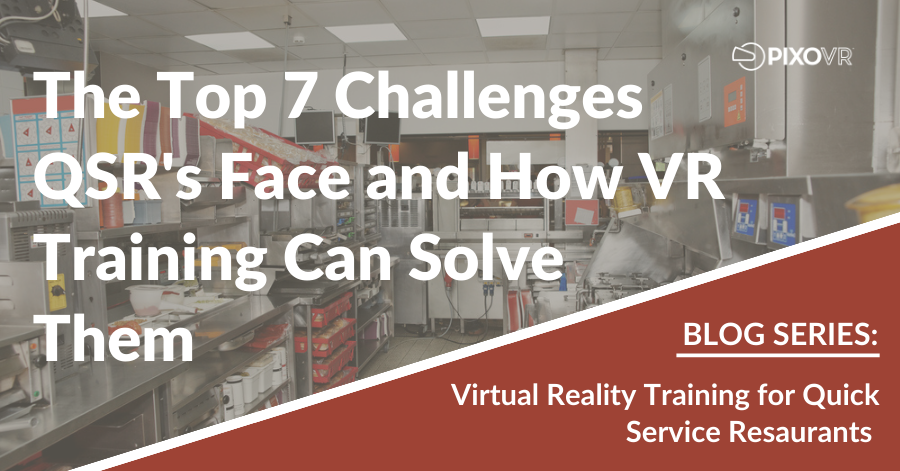Quick Service Restaurants (QSRs) can address several challenges through the implementation of virtual reality (VR) training. Here are some key challenges that VR training can help solve:
- High Employee Turnover: QSRs often face high turnover rates, resulting in the need for frequent training and onboarding. VR training offers a standardized and efficient solution, allowing new employees to undergo immersive training experiences that accelerate their learning curve, reducing training time and costs associated with frequent turnover.
- Consistency in Service Delivery: Maintaining consistent service quality across multiple locations can be challenging. VR training ensures standardized practices by providing employees with realistic simulations that guide them through standard operating procedures, ensuring consistent service delivery and customer experiences.
- Customer Service Skills Development: QSRs rely on excellent customer service to build customer loyalty. VR training enables employees to practice customer interactions, handle difficult scenarios, and develop strong communication and problem-solving skills. This helps enhance customer satisfaction and loyalty, leading to increased business growth.
- Food Safety and Handling: Maintaining proper food safety and handling practices is critical in QSRs. VR training allows employees to practice food preparation, hygiene, and safety protocols in realistic simulated environments. By reinforcing best practices, QSRs can minimize the risk of foodborne illnesses and ensure consistent compliance with safety regulations.
- Operational Efficiency: VR training can improve operational efficiency by allowing employees to practice tasks like order taking, food assembly, and equipment operation. Employees can gain confidence and proficiency through simulated experiences, resulting in faster and more accurate service, reduced errors, and improved overall operational efficiency.
- Cost-Effective Training: Traditional training methods often involve costs associated with physical resources, printed materials, and hiring trainers. VR training eliminates these expenses by offering a cost-effective alternative. Once the initial VR infrastructure is in place, QSRs can replicate and scale training programs without incurring significant additional costs.
- Remote Training and Accessibility: VR training enables remote training opportunities, making it accessible to employees across different locations. This flexibility allows QSRs to provide consistent training experiences and reach a broader workforce, regardless of geographical constraints.
By addressing these challenges with virtual reality training, QSRs can enhance employee skills, improve operational efficiency, and deliver exceptional customer experiences.
For more information on how PIXO is improving training and customer satisfaction through VR training, click here!

Leave a Reply
You must be logged in to post a comment.